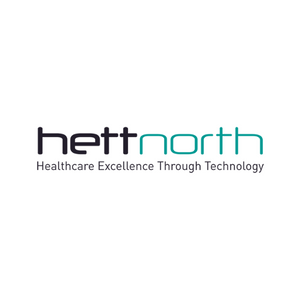Digital transformation in the UK healthcare sector holds immense potential for improving patient care, operational efficiency, and overall outcomes. However, maximising Return on Investment (ROI) requires a nuanced and targeted approach. In this blog post, we'll explore key strategies to ensure that your digital transformation in UK healthcare not only meets its objectives but also delivers a sustainable and impactful ROI.
How to Drive ROI in Healthcare
1. Aligning Digital Initiatives with Healthcare Objectives:
For digital transformation in UK healthcare to yield optimal ROI, it must align closely with the sector's specific objectives. Whether the focus is on reducing waiting times, enhancing patient outcomes, or streamlining administrative processes, every digital initiative should be directly tied to overarching healthcare goals.
Identify key performance indicators (KPIs) relevant to the healthcare landscape. Metrics such as improved patient satisfaction, reduced administrative costs, or enhanced data interoperability can serve as tangible indicators of success. A clear alignment of digital strategies with healthcare objectives lays the foundation for a targeted and impactful ROI.
2. Investment in Targeted Healthcare Technologies:
Selecting the right technologies is critical in the context of UK healthcare. Assess the unique challenges faced by healthcare providers, such as the need for interoperability, data security, and enhanced patient engagement. Invest in technologies that directly address these challenges, whether it involves adopting Electronic Health Records (EHRs), implementing telehealth solutions, or incorporating AI for diagnostics.
Consider scalability and interoperability when choosing technologies to ensure seamless integration into the existing healthcare ecosystem. Engage with technology experts who understand the nuances of the UK healthcare sector to guide you in selecting solutions that align with industry standards and best practices.
3. Patient-Centric Digital Solutions:
The UK healthcare landscape places a significant emphasis on patient-centric care. Digital transformation should prioritise solutions that enhance the patient experience, contributing to improved outcomes and satisfaction. Invest in technologies that facilitate remote patient monitoring, telemedicine consultations, and personalised health management.
Digital tools that empower patients to actively participate in their care, access information, and engage with healthcare providers contribute not only to better outcomes but also to increased patient loyalty. Improved patient satisfaction and loyalty, in turn, positively impact the ROI of digital initiatives.
4. Comprehensive Staff Training and Change Management:
In the healthcare sector, the successful adoption of digital technologies is heavily dependent on the proficiency of healthcare professionals and staff. Invest in comprehensive training programs to ensure that the workforce is adept at utilising new systems effectively. This includes not only technical training but also education on the benefits of digital tools for patient care.
Change management is vital to address potential resistance and ensure a smooth transition. Communicate the positive impact of digital transformation on patient care, staff efficiency, and overall healthcare outcomes. Engaged and well-prepared healthcare professionals are more likely to embrace digital tools, leading to increased productivity and, consequently, a positive impact on ROI.
5. Data Security and Regulatory Compliance:
The sensitivity of healthcare data requires a heightened focus on data security and regulatory compliance. Ensure that your digital transformation initiatives in UK healthcare adhere to strict data protection standards, including the General Data Protection Regulation (GDPR). Investments in robust cybersecurity measures, encryption technologies, and regular compliance audits are essential to safeguard patient information.
A strong commitment to data security not only protects against potential financial losses from data breaches but also upholds the trust and reputation of healthcare providers. This indirectly contributes to the ROI by mitigating reputational and financial risks associated with data security breaches.
6. Continuous Monitoring and Optimisation:
The healthcare sector is dynamic, and digital transformation is an ongoing process. Regularly monitor the performance of digital systems and analyse their impact on key healthcare metrics. Solicit feedback from healthcare professionals, patients, and administrators to identify areas for improvement and optimisation.
Embrace a culture of continuous improvement, where the healthcare organisation is agile and responsive to evolving healthcare needs. Regularly reassess your digital strategy to ensure it remains aligned with healthcare objectives and regulatory standards. This iterative approach not only safeguards your initial investment but positions the healthcare provider to adapt and excel in the evolving UK healthcare landscape.
A Future of Efficient and Patient-Centric Healthcare
Digital transformation in UK healthcare has the potential to revolutionise the sector, bringing about improved patient care and operational efficiency. By aligning digital initiatives with healthcare objectives, investing in targeted technologies, prioritising patient-centric solutions, ensuring comprehensive staff training, upholding data security, and embracing continuous improvement, healthcare providers can not only navigate the complexities of digital transformation but also realise a substantial and sustainable ROI.
As the UK healthcare sector continues its journey toward digital maturity, leveraging technology strategically will not only drive ROI but also position healthcare providers at the forefront of delivering efficient, patient-centric, and high-quality healthcare services.
%20(1).png?width=500&height=58&name=HETT%20insights%20logo%20RGB-04%20(1)%20(1).png)


